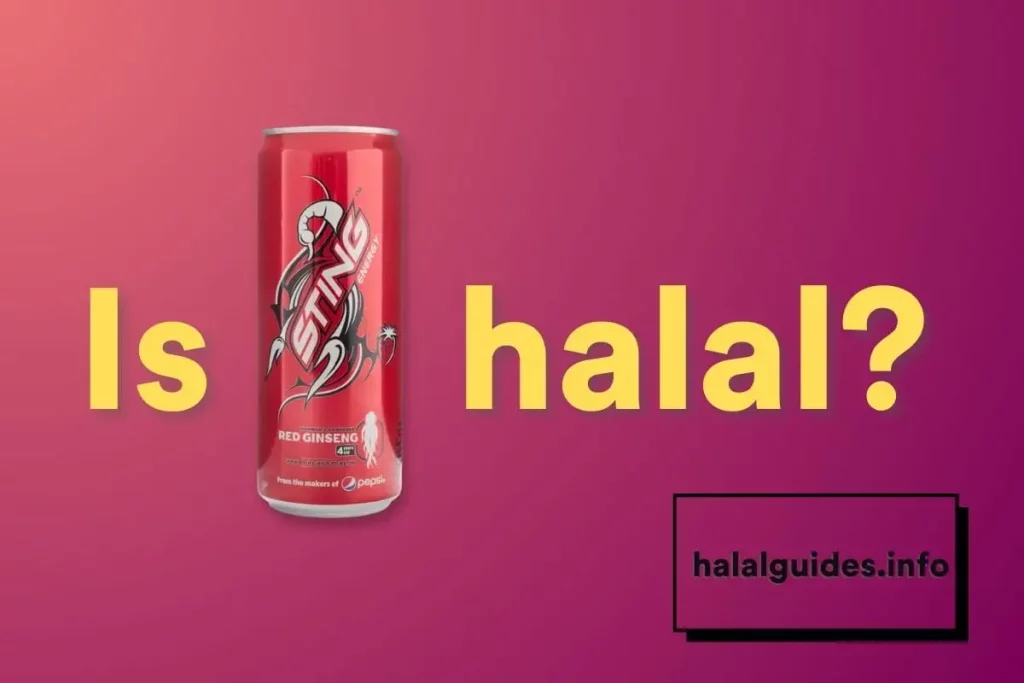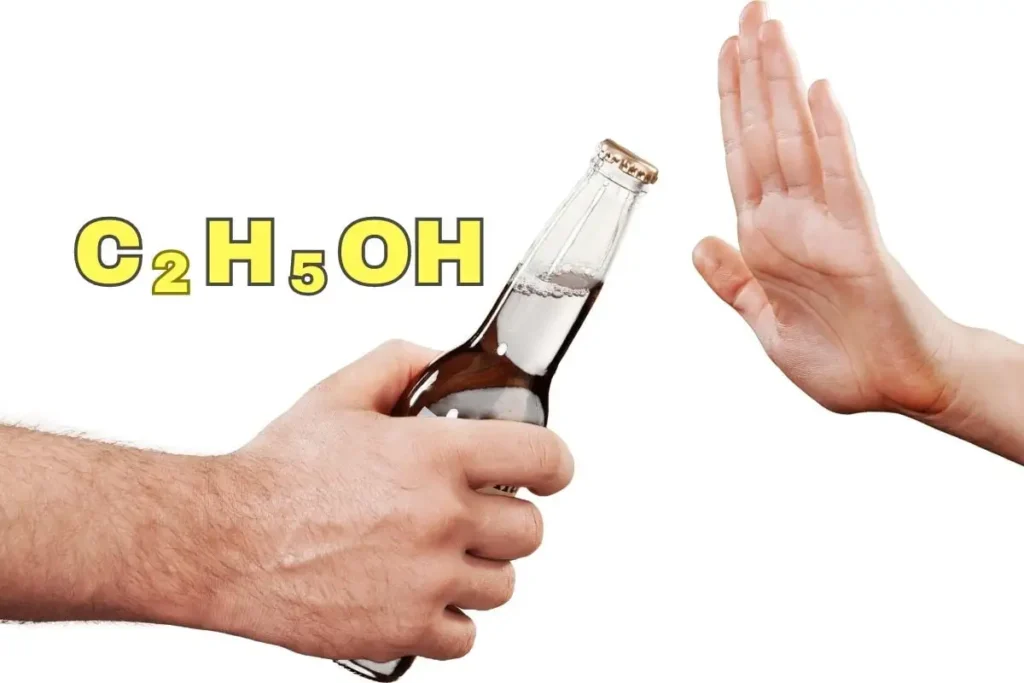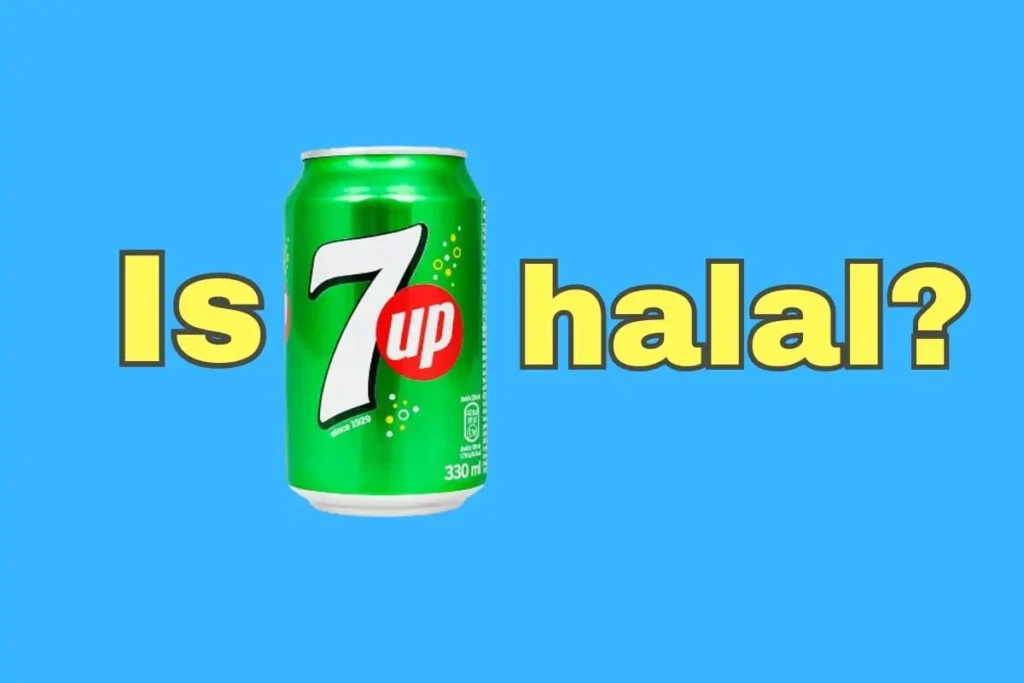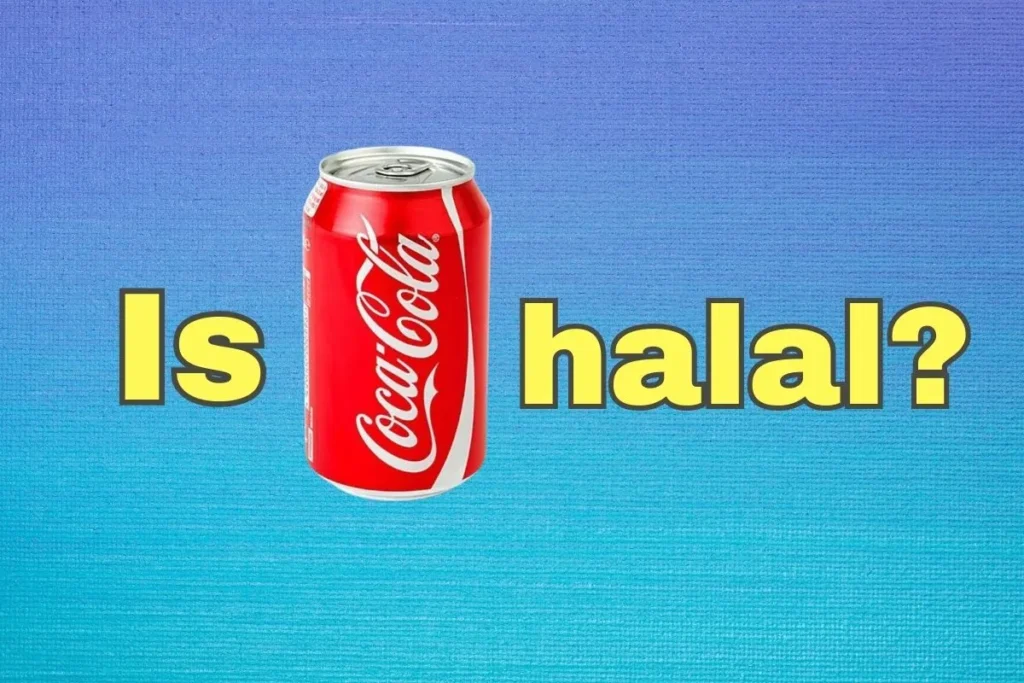For Muslim consumers, the question of whether or not Sting energy drink is halal may be a pressing concern. With so many energy drinks on the market, it can be difficult to determine which ones are halal and which are not, leaving many Muslims uncertain about whether or not they can consume them without violating their religious beliefs.
Today, we will explore the question of whether or not Sting energy drink is halal and provide information and resources to help Muslims make informed decisions about their consumption of energy drinks. Whether you are a Muslim, a curious consumer, or simply interested in learning more about halal dietary law.
Key Takeaways
| 📌 Sting Energy Drink, produced by Rockstar Inc., contains a unique blend of ingredients including caffeine, taurine, and sugar, providing a moderate energy boost. |
| 📌 Halal dietary regulations are based on Islamic teachings and guide Muslims on permissible and forbidden foods. |
| 📌Sting Energy Drink is evaluated as halal based on its ingredients and safety testing, but Muslims are advised to consume it in moderation to avoid potential health risks. |
About Sting Energy Drink

Sting Energy Drink, produced by Rockstar Inc. and formerly under PepsiCo, is a popular carbonated energy beverage that provides a boost of energy with its unique blend of ingredients.
Like other energy drinks, Sting is powered by caffeine, taurine, and sugar. With 200mg of caffeine and 34.3g of sugar per serving, Sting offers a moderate level of stimulation.
The drink comes in various flavors, including Berry Blast, Gold Rush, Power Pacq, and Power Lime, each offering a distinct taste experience. Sting Energy Drink contains a range of ingredients, such as carbonated water, sugar, citric acid, artificial flavor, maltodextrin, sodium citrate, and more.
One notable ingredient is ginseng, which is known for its potential health benefits. It’s important to note that energy drinks, including Sting, should be consumed in moderation due to their caffeine content and potential health effects.
Overall, Sting Energy Drink is a carbonated beverage that combines caffeine, sugar, and other ingredients to provide a refreshing and energizing experience.
Determining Halal and Haram in Food
The dietary regulations of Halal have been established in accordance with Islamic teachings. This system permits the consumption of all foods that are deemed permissible, with the exception of those that have been specifically prohibited by divine revelation or the counsel of the Prophet Muhammad ﷺ (peace be upon him).
By adhering to these guidelines, individuals can ensure that their culinary choices are compliant with the prescribed standards. It is reassuring to note that one need not sacrifice the pleasure of delicious cuisine; rather, it is simply a matter of being conscientious about the selection of foods and eating in moderation.
As per the tenets outlined in the Quran, Allah has graciously bestowed upon us:
يَـٰٓأَيُّهَا ٱلنَّاسُ كُلُوا۟ مِمَّا فِى ٱلْأَرْضِ حَلَـٰلًۭا طَيِّبًۭا وَلَا تَتَّبِعُوا۟ خُطُوَٰتِ ٱلشَّيْطَـٰنِ ۚ إِنَّهُۥ لَكُمْ عَدُوٌّۭ مُّبِينٌ
“O humanity! Eat from what is lawful and good on the earth and do not follow Satan’s footsteps. He is truly your sworn enemy.”
When considering the prohibition (haram) of a given topic, it is essential to thoroughly examine the three fundamental components that impact its determination.
1. Materials that have the potential to cause harm to individuals or the surrounding environment
As indicated in the sacred scriptures, it is evident that Allah has unambiguously proclaimed:
وَأَنفِقُواْ فِي سَبِيلِ ٱللَّهِ وَلَا تُلۡقُواْ بِأَيۡدِيكُمۡ إِلَى ٱلتَّهۡلُكَةِ وَأَحۡسِنُوٓاْۚ إِنَّ ٱللَّهَ يُحِبُّ ٱلۡمُحۡسِنِينَ
“And spend of your substance in the cause of Allah, and make not your own hands contribute to (your) destruction; but do good; for Allah loves those who do good.
2. The decree of Allah or the instruction of the Prophet
The Islamic holy book, the Quran, provides valuable information regarding dietary practices that must be followed by Muslims. One of its significant verses, chapter 5 verse 3, lists out specific food items that are prohibited. Observing these restrictions is crucial not just for physical well-being but also for achieving spiritual contentment.
حُرِّمَتْ عَلَيْكُمُ ٱلْمَيْتَةُ وَٱلدَّمُ وَلَحْمُ ٱلْخِنزِيرِ وَمَآ أُهِلَّ لِغَيْرِ ٱللَّهِ بِهِۦ وَٱلْمُنْخَنِقَةُ وَٱلْمَوْقُوذَةُ وَٱلْمُتَرَدِّيَةُ وَٱلنَّطِيحَةُ وَمَآ أَكَلَ ٱلسَّبُعُ إِلَّا مَا ذَكَّيْتُمْ وَمَا ذُبِحَ عَلَى ٱلنُّصُبِ
“Forbidden to you are carrion, blood, and swine; what is slaughtered in the name of any other than Allah; what is killed by strangling, beating, a fall, or by being gored to death; what is partly eaten by a predator unless you slaughter it; and what is sacrificed on altars.“
3. Substances with intoxicating properties or immoderate consumption of alcoholic beverages
The Islamic faith has established dietary laws that include specific limitations on the consumption of food and beverages. It is noteworthy that certain food items may be deemed impermissible under these laws. This includes any alcoholic beverages that contain intoxicants, such as wine, beer, rum, and other liquors, as they are considered haram or forbidden.
Additionally, it is important to acknowledge that any other beverage that surpasses the alcohol limits set by Fatwa is also considered impermissible. Adhering to these dietary restrictions is an important aspect of Islamic practice and observance.
As we explore the elements that comprise Sting Energy, it’s important to evaluate their alignment with the dietary principles of Islam. Let’s take a closer look to gain a deeper understanding of how these components may impact our health and wellness.
Sting Energy Ingredients
Sting Energy is made of these ingredients :
- Carbonated water
- Sugar
- Citric acid
- Artificial flavor
- Maltodextrin
- Sodium citrate
- Sodium hexametaphosphate
- Taurine
- Potassium sorbate
- Caffeine
- Sodium benzoate
- Tartrazine
- Inositol
- Calcium disodium EDTA
- Modified food starch
- Panax ginseng extract
- Niacinamide
- Sunset Yellow
- Pyridoxine hydrochloride
Exploring further into certain ingredients that have piqued your interest could provide us with valuable insight. By conducting a thorough evaluation of these components, we can gain a better understanding of how they influence the overall outcome.
Here’s a quick overview of these substances. Rest assured, we’ve included a comprehensive explanation of any questionable ingredients after the table.
| Ingredient | Description and Source |
|---|---|
| Carbonated Water | Infused with carbon dioxide gas to create a fizzy liquid, primarily used as a beverage base. Plant-derived. |
| Sugar | Derived from plants such as sugarcane and sugar beet, offering a sweet note to foods and beverages. Plant-derived. |
| Citric Acid | Found naturally in citrus fruits, this ingredient adds a sour flavor and acts as a preservative. Plant-derived. |
| Artificial Flavor | Carbohydrates derived from starch, are used to thicken and stabilize foods and beverages. Plant-derived. |
| Maltodextrin | Carbohydrates derived from starch, are used to thicken and stabilize foods and beverages. Plant-derived. |
| Sodium Citrate | Used to enhance flavor and preserve the product; it originates from citric acid, which is plant-based. Plant-derived. |
| Sodium Hexametaphosphate | A sequestering agent that maintains the quality and appearance of products, ensuring longevity. Synthetically derived. |
| Taurine | Often found in energy drinks, this ingredient can be synthetically produced or sourced from animals. Potentially animal-derived. |
| Potassium Sorbate | Widely used to extend the shelf life of products, this preservative is not derived from animals. Synthetically derived. |
| Caffeine | Natural stimulants are most commonly extracted from tea, coffee, and cacao plants. Plant-derived. |
| Sodium Benzoate | Derived from benzoic acid, it serves as a preservative to enhance the shelf life of products. Synthetically derived. |
| Tartrazine | A synthetic lemon-yellow dye is used to color food and beverages. Synthetically derived. |
| Inositol | This type of sugar can naturally occur in fruits and other plants or be created artificially. Generally, plant-derived. |
| Calcium Disodium EDTA | Often used to preserve the quality of foods and beverages, it is created synthetically. Synthetically derived. |
| Modified Food Starch | Chemically altered starch serves to improve its utility as a food ingredient; the source can be plants or potentially animals. Potentially animal-derived. |
| Panax Ginseng Extract | Sourced from the ginseng plant, this extract is used for its potential health benefits. Plant-derived. |
| Niacinamide | Synthetically created form of vitamin B3, used in products for its health benefits. Synthetically derived. |
| Sunset Yellow | A synthetic dye offering a yellow-orange hue to products, created artificially. Synthetically derived. |
| Pyridoxine Hydrochloride | Often synthetically produced, this form of vitamin B6 is used for its health-related benefits. Synthetically derived. |
Taurine
Taurine, a naturally occurring type of amino acid, is highly concentrated in various tissues of the body such as the brain, eyes, heart, and muscles. Unlike other amino acids, it does not play a role in protein synthesis but instead contributes to a multitude of vital physiological processes.
These include electrolyte balance and hydration maintenance, formation of bile salts to aid digestion, and regulation of mineral balance within cells.
When taken as a supplement, taurine is generally considered safe even in large amounts, with a recommended upper limit of 3,000 milligrams daily. It can be obtained naturally from a variety of sources including meat, fish, dairy products, and even human milk. Alternatively, it can also be consumed as a dietary supplement.
Research on the effects of taurine supplementation on athletic and mental performance is inconclusive. Some studies indicate that taurine intake may enhance athletic performance by improving exercise capacity and that its combination with caffeine may improve mental function.
However, these findings are not universally accepted, and further research is necessary to confirm them. In particular, the use of taurine in energy drinks remains controversial, as high levels of taurine and caffeine in these products may pose a threat to adolescent development, according to a 2017 review.
Therefore, caution is advised regarding the use of taurine supplements and energy drinks until more conclusive evidence becomes available.
Caffeine
Caffeine is a naturally occurring chemical present in a variety of plants, including coffee, tea, cola, cocoa, guarana, and cacao beans. This stimulant has an impact on the central nervous system, heart, muscles, and blood pressure control centers within the body.
Extensive research spanning several decades has shown that consuming moderate amounts of caffeine is generally safe for the general healthy population and does not pose a threat to health. It is widely accepted that consuming caffeine in moderation is safe for most individuals.
The U.S. Food and Drug Administration (FDA) has established 400 milligrams of caffeine per day (equivalent to approximately 4 cups of brewed coffee) as a safe intake level for healthy adults.
However, it is important to bear in mind that individual sensitivity to caffeine can differ, and some individuals may need to restrict their consumption due to specific health conditions or personal sensitivity.
The mechanism of action of caffeine involves stimulation of the brain and central nervous system. This leads to enhanced levels of alertness and a reduction in tiredness.
Caffeine achieves this effect by blocking the actions of adenosine, which is a neurotransmitter that promotes relaxation and drowsiness. As a result, caffeine can improve focus and wakefulness.
It is worth noting that caffeine can transiently elevate blood pressure. However, individuals who consume caffeine regularly may eventually develop tolerance to this effect. Additionally, caffeine can also act as a diuretic by promoting urine output. Nevertheless, this diuretic effect is generally mild and is unlikely to lead to dehydration when consumed within moderate limits.
Inositol
Inositol is a naturally occurring type of sugar that can be found in the body and in some food sources. Furthermore, it is also available in the form of a dietary supplement. Generally, Inositol is regarded as safe for most individuals when orally consumed for a period of up to 10 weeks.
The Food and Drug Administration (FDA) has acknowledged that Inositol is generally safe, however, higher doses of the supplement may result in mild side effects such as diarrhea, gas, and nausea.
It is important to note that there is insufficient reliable information available to ascertain the safety of Inositol when applied topically to the skin, or what potential side effects may arise. Clinical trials involving Inositol have not exceeded a time frame of 1 year, therefore, the long-term safety of taking Inositol remains uncertain at this time.
According to a comprehensive analysis of over 250 patients, the consumption of Myo-inositol at a dosage range of 12-30g per day is linked to gastrointestinal discomforts such as nausea, flatulence, loose stools, and diarrhea.
Although higher doses may still be considered safe, they could potentially lead to further gastrointestinal complications, including but not limited to nausea and diarrhea, as well as symptoms such as headaches, dizziness, or fatigue. It is advised to exercise caution and closely monitor any adverse reactions when considering the use of myo-inositol as a dietary supplement.
Is Sting Energy Drink Halal?
We’ve done a careful assessment of Sting Energy, and it aligns with halal guidelines. The ingredients in Sting Energy have passed rigorous safety tests, don’t contain any animal-derived components, and are commonly used in various food and beverage items.
Nevertheless, Muslims are advised to consume Sting Energy in moderation to minimize any potential health risks that may arise, as exceeding the recommended intake could render it haram (forbidden) to consume.
Find out more:
Is Boost Energy Drink Halal?
Is Prime Energy Drink Halal?
Conclusion
Despite the presence of ingredients commonly used in other food and beverage items and undergoing safety testing, the absence of halal certification for Sting Energy raises concerns for individuals seeking halal products.
As a health-conscious consumer, it is essential to make informed decisions that align with personal beliefs and dietary practices. It is recommended to consider alternative energy drink options that have obtained halal certification to ensure adherence to halal standards.
Allahu A’lam (Allah knows best)
FAQ
Is Sting Energy Drink an Israeli product?
There is no evidence to suggest that Sting Energy Drink is an Israeli product. Sting Energy Drink is a carbonated energy drink produced by Rockstar Inc., which was acquired by PepsiCo in 2020.
While there is information available about the energy drinks market in Israel and the presence of various energy drink brands in the country, there is no indication that Sting Energy Drink is an Israeli product.
Does Sting Energy drink have alcohol?
No, Sting Energy Drink does not contain alcohol. The ingredients of Sting Energy Drink, as listed on the product packaging. It is a non-alcoholic beverage that is designed to provide a boost of energy through its unique blend of ingredients, including caffeine, taurine, and sugar.
Is Sting Energy drink harmful?
Sting Energy Drink, like other energy drinks, contains a blend of ingredients that can have both positive and negative effects on the body. While these ingredients can provide a boost of energy, they can also cause negative effects if consumed in excess.
For example, the high levels of caffeine and sugar in Sting Energy Drink can lead to high blood pressure, obesity, and other health problems if consumed regularly. Additionally, some of the ingredients in Sting Energy Drink, such as artificial sweeteners, have been linked to negative health effects.
It’s important to consume Sting Energy Drink in moderation and to be aware of the potential risks associated with energy drinks in general. If you have concerns about the safety of Sting Energy Drink or any other energy drink, it’s best to consult with a healthcare professional.
Does Sting Energy contain aspartame?
Sting Energy Drink does not contain aspartame.
Is Blue Sting Halal?
No, Sting Energy Drink is not alcoholic. It is made with natural ingredients including caffeine, taurine, guarana, and ginseng. Some people may think it is alcoholic because of its similarity to alcoholic beverages, but it does not contain alcohol. The packaging of Sting Energy Drink does not state any alcoholic content.
Does Sting energy drink cause cancer?
There is no scientific evidence to suggest that Sting Energy Drink causes cancer. While there are concerns about the potential health effects of energy drinks, including Sting, there is no direct link between energy drinks and cancer.
While some of the ingredients have been linked to negative health effects, such as high blood pressure and obesity, there is no evidence to suggest that they cause cancer.
What is the purpose of inositol in Sting Energy Drink?
In Sting Energy Drink, inositol serves multiple purposes. Inositol is a sugar alcohol that aids the nervous system and provides structure to cells. It also helps modulate serotonin levels, which is a key hormone that stabilizes mood, feelings, and happiness. In energy drinks, including Sting, inositol is included because it aids with the nervous system and serotonin modulation.
Additionally, some studies suggest that inositol may prevent neutral fat accumulation, potentially helping the body burn fat. Overall, inositol plays a role in supporting the nervous system and serotonin regulation, contributing to the overall effects of Sting Energy Drink.
- Is Pop Tarts Halal? What You Need to Know - February 18, 2024
- Are Graham Crackers Halal in Islam? - January 19, 2024
- Is Keebler Wheatables Halal? - January 18, 2024





